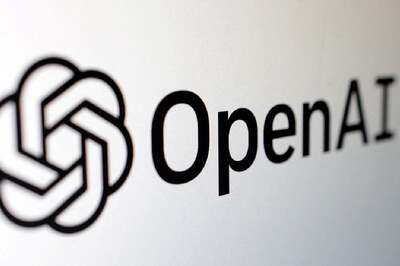
views
London: The "ransomware" cyberattack that has hit companies and governments around the world ebbed in intensity on Monday, though experts warned that new versions of the virus could emerge.
Thousands more infections were reported Monday, largely in Asia, which had been closed for business when the malware first struck Friday. The cases were more contained, however, than the systemic outbreak that last week paralyzed computers running factories, banks, government agencies and transport systems around the world.
Carmaker Renault said one of its French plants, which employs 3,500 people, wasn't reopening Monday as a "preventative step."
Britain's National Health Service said about a fifth of NHS trusts — the regional bodies that run hospitals and clinics — were hit by the attack on Friday, leading to thousands of canceled appointments and operations. Seven of the 47 affected trusts in England were still having IT problems that disrupted services Monday. Thirteen health bodies in Scotland that were hit were up and running Monday, Scottish First Minister Nicola Sturgeon said.
Ryan Kalember, senior vice president at Proofpoint Inc., which helped stop its spread, said the version without a kill switch could spread. It was benign because it contained a flaw that prevented it from taking over computers and demanding ransom to unlock files but other more malicious ones will likely pop up.
"We haven't fully dodged this bullet at all until we're patched against the vulnerability itself," Kalember said.
Lynne Owens, director-general of Britain's National Crime Agency, said there was no indication of a second surge of the cyberattack, "But that doesn't mean there won't be one."
Tim Stevens, a lecturer in global security at King's College London, said the incident should be a wakeup call to both the public and private sectors to incorporate security into computer systems from the ground up, rather than as an afterthought.
"This thing cannot be brushed under the carpet," he said. "It is so visible and so global. There is going to have to be change at levels where change can be made."
On Monday, Chinese state media said 29,372 institutions there had been infected along with hundreds of thousands of devices.
Universities and other educational institutions in the country were among the hardest hit, possibly because schools tend to have old computers and be slow to update operating systems and security.
Railway stations, mail delivery, gas stations, hospitals, office buildings, shopping malls and government services also were reportedly affected.
In Japan, 2,000 computers at 600 locations were reported to have been affected. Companies including Hitachi and Nissan Motor Co. reported problems but said they had not seriously affected their operations. In Indonesia, the malware locked patient files on computers in two hospitals in the capital, Jakarta, causing delays.
In Britain, the government denied allegations that lax cybersecurity in the financially stretched, state-funded health service had helped the attack spread.
Prime Minister Theresa May said "warnings were given to hospital trusts" about the Microsoft vulnerability exploited by the attackers.
Experts urged organizations and companies to immediately update older Microsoft operating systems, such as Windows XP, with a patch released by Microsoft Corp. to limit vulnerability to a more powerful version of the malware — or to future versions that can't be stopped.
The attack held users hostage by freezing their computers, popping up a red screen with the words, "Oops, your files have been encrypted!" and demanding money through online bitcoin payment — $300 at first, rising to $600 before it destroys files hours later.
Microsoft distributed a patch two months ago that protected computers from such an attack, but in many organizations it was likely lost among the blizzard of updates and patches that large corporations and governments strain to manage.
Tom Bossert, a homeland security adviser to President Donald Trump, said "criminals" were responsible, not the U.S. government. Bossert said the U.S. hasn't ruled out involvement by a foreign government, but that the recent ransom demands suggest a criminal network.
Bossert told ABC's "Good Morning America" that the attack is something that "for right now, we've got under control" in the United States.
So far, not many people have paid the ransom demanded by the malware, Europol spokesman Jan Op Gen Oorth told The Associated Press.
Eiichi Moriya, a cybersecurity expert and professor at Meiji University, warned that paying the ransom would not guarantee a fix.




















Comments
0 comment